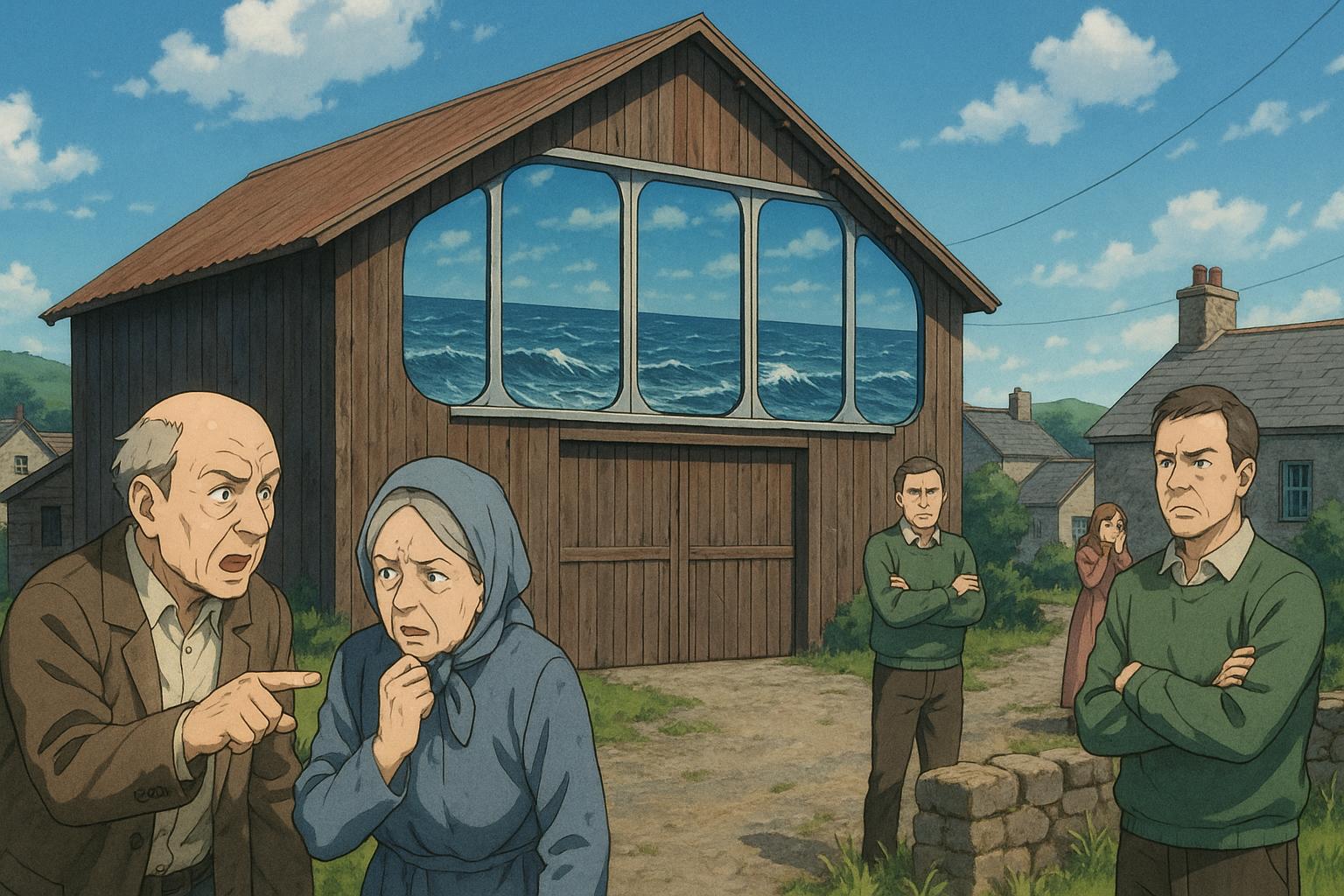The recent transformation of a barn conversion into a luxury holiday let in Penisarwaun, North Wales, has ignited considerable controversy and discord within the local community. Owned by property developer Karl Jones, the accommodation, marketed at £500 per night, has drawn sharp criticism from neighbours who describe it as an "alien" presence in their rural landscape, likening its design—with oversized 18-foot windows—to an ocean liner.
Local residents have raised serious concerns, voicing distress over noise disturbances attributed to the influx of holidaymakers. Reports of loud music, rowdy behaviour, and the use of a hot tub have led to complaints that their quality of life is being adversely affected. Villagers claim that the social behaviour of some guests, which reportedly includes nudity, has further exacerbated tensions, with one elderly neighbour, Janet Gayther, lamenting a loss of privacy and stating that the activities of the guests have made her life a “misery.”
In response to these complaints, Gwynedd Council has issued a planning enforcement notice to Mr Jones. The council's directive requires the property to cease operating as a short-term holiday let and return to its prior ancillary use. Critics argue that the barn's transformation has not only disrupted the tranquil character of their community but also potentially violated planning regulations, creating a pressing need for local governance to intervene. As of now, Mr Jones has until April 2025 to appeal the enforcement notice, a pathway that he believes will allow for a resolution.
Significantly, the situation highlights an ongoing tension in rural communities around holiday lets and their impact on local life. Similar issues are emerging across Wales, where residents have complained about large structures appearing without appropriate planning permissions and causing disturbances. Communities across the region are voicing fears about privacy invasions and noise pollution, identifying the changing nature of their locales as short-term rentals proliferate.
While Karl Jones argues that his efforts have been mischaracterised as disruptive, feeling ostracised by his fellow residents who he claims are misled by exaggerations, neighbours remain steadfast in their opposition. They argue that the luxury offering has attracted problematic behaviour that is not aligned with the quiet character of rural living. Michael Sharp, another local resident, noted that the disruptions include visitors knocking on neighbours' doors late at night, further emphasizing the encroachment of holidaymakers into the fabric of community life.
As the story unfolds, it is clear that the rise of short-term rentals poses significant questions about balancing economic benefit with community integrity, something that local councils and residents alike will need to navigate carefully. The case of Mr Jones’ barn conversion serves as a focal point for broader discussions on housing, planning permissions, and the rights of communities to protect their way of life against disruptive businesses posing as tourism opportunities.
In the backdrop, North Wales Police have also been called to address reports of harassment towards guests, underlining the escalating tensions that have resulted from this rapidly changing landscape. With local attitudes shifting and the community's future hanging in the balance, this incident may serve as a microcosm of the growing pains associated with the tourism sector in rural settings.
Reference Map
- Paragraph 1: [1], [2]
- Paragraph 2: [1], [2]
- Paragraph 3: [1], [2]
- Paragraph 4: [1], [2]
- Paragraph 5: [1], [2], [3]
- Paragraph 6: [1], [2]
- Paragraph 7: [1], [4], [5], [6]
Source: Noah Wire Services
